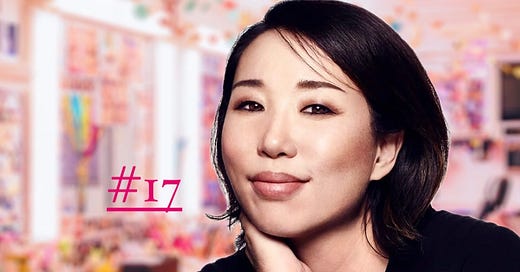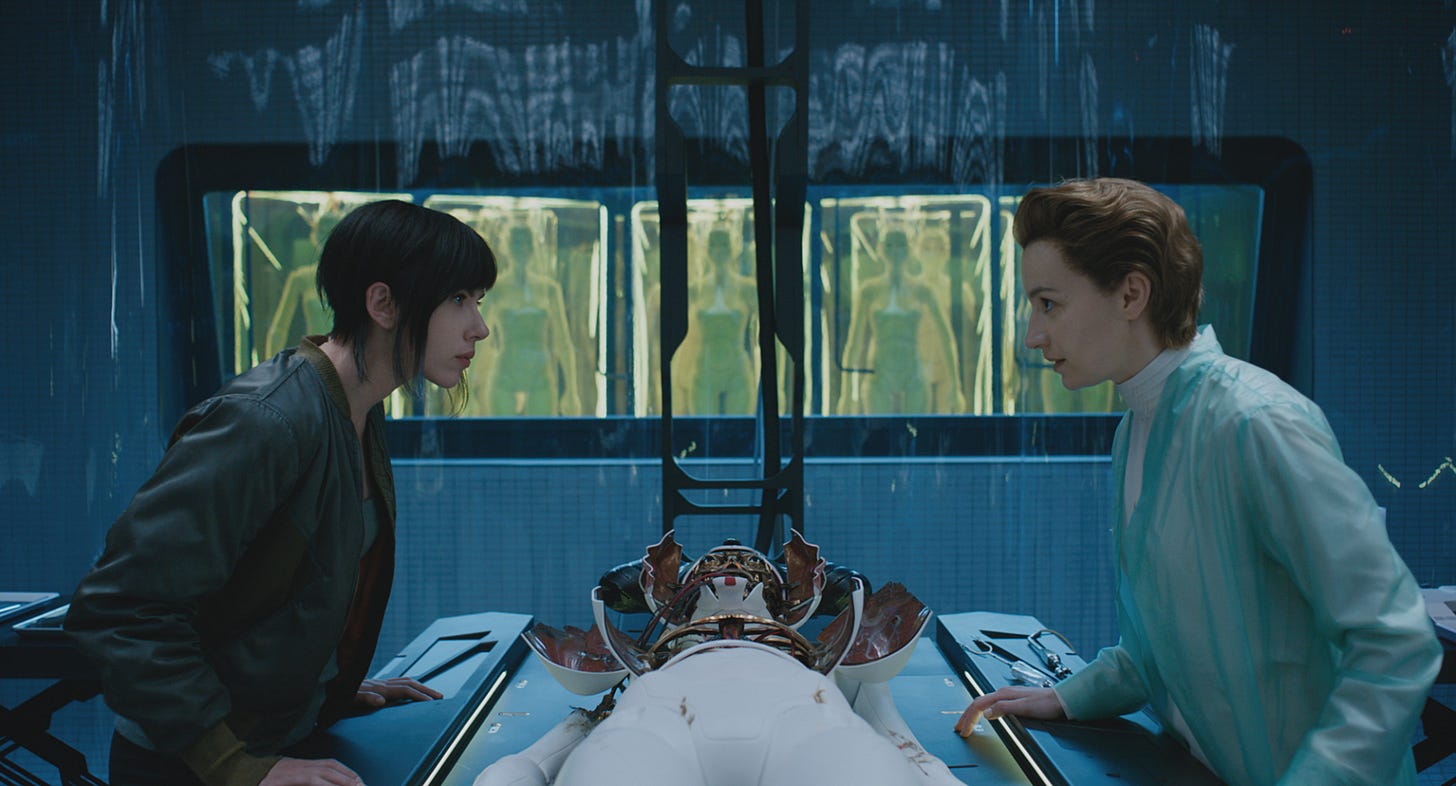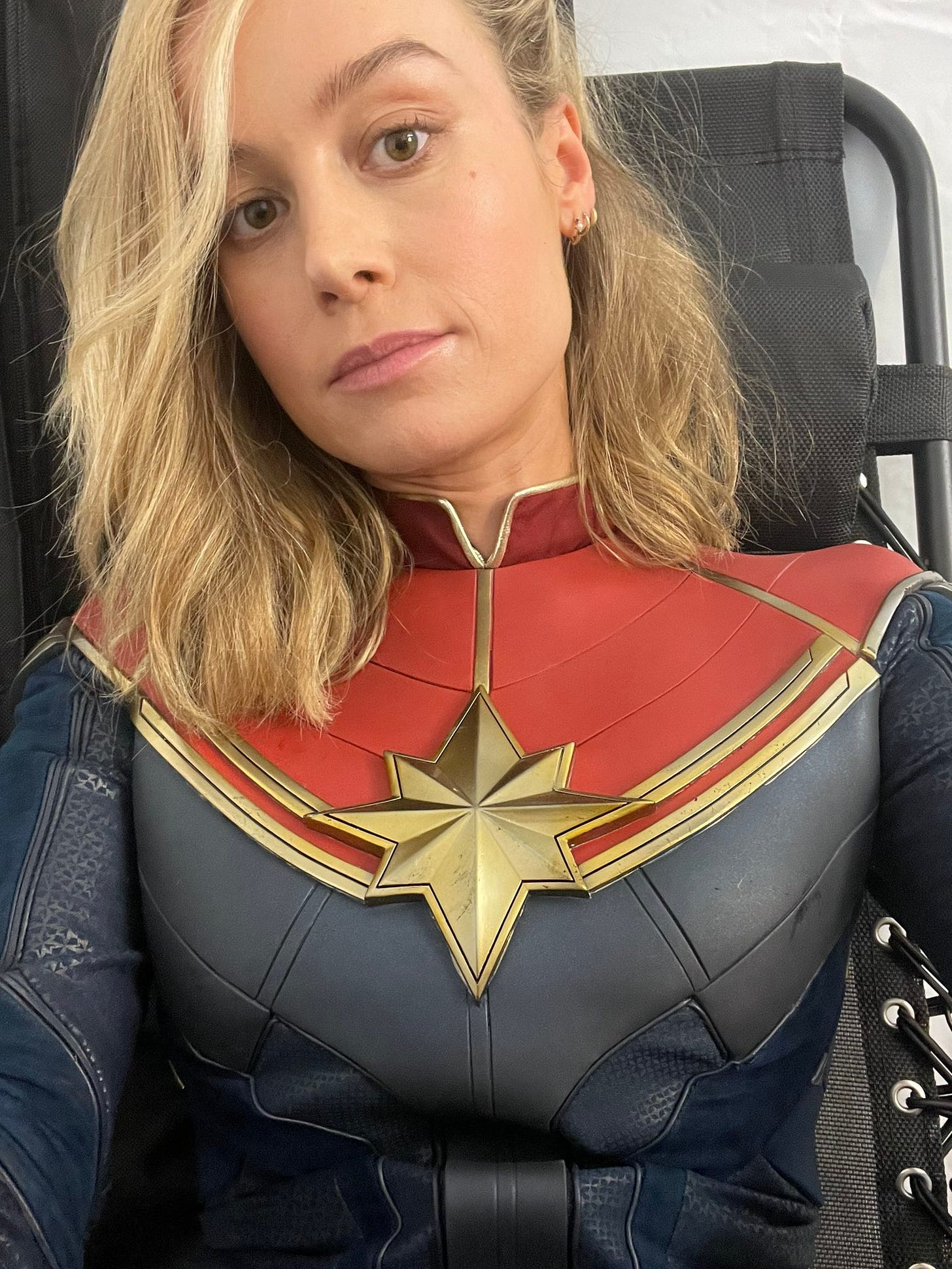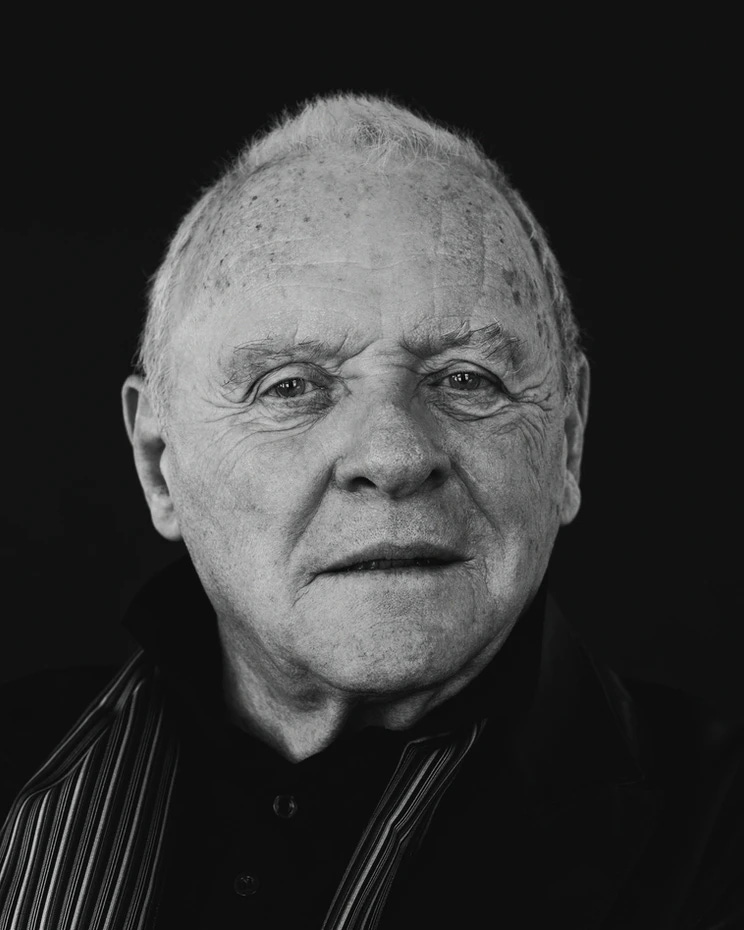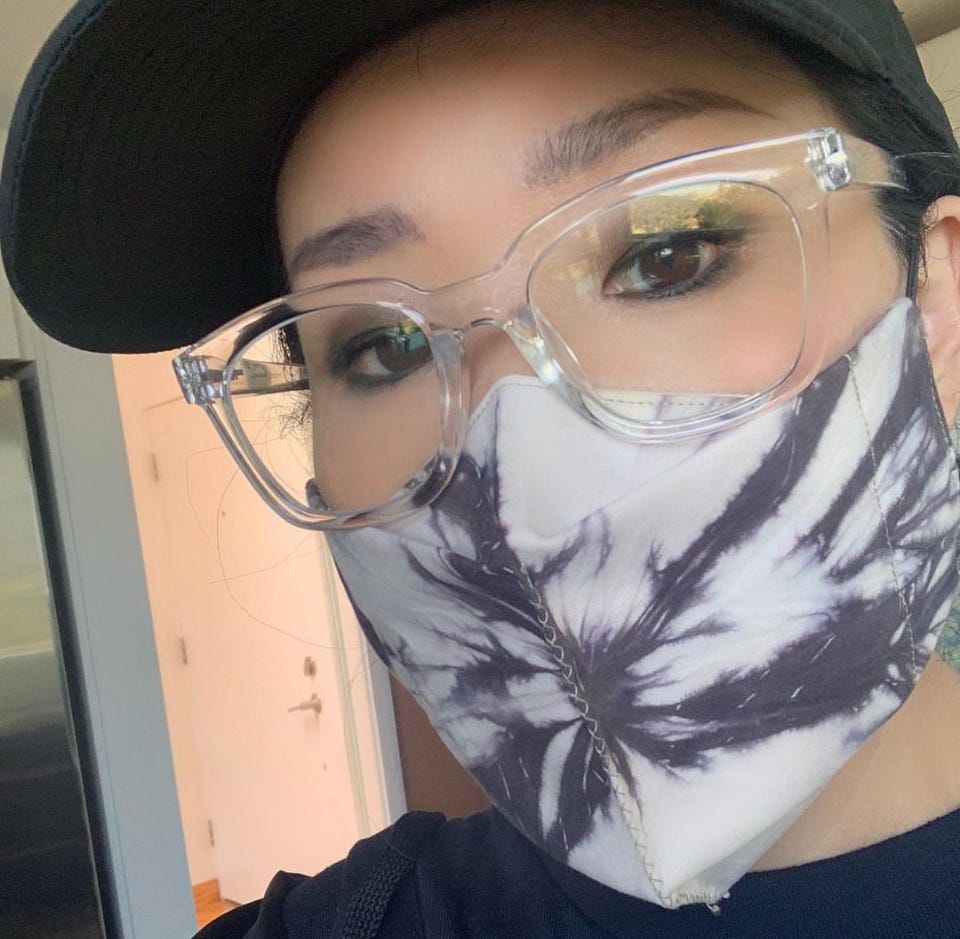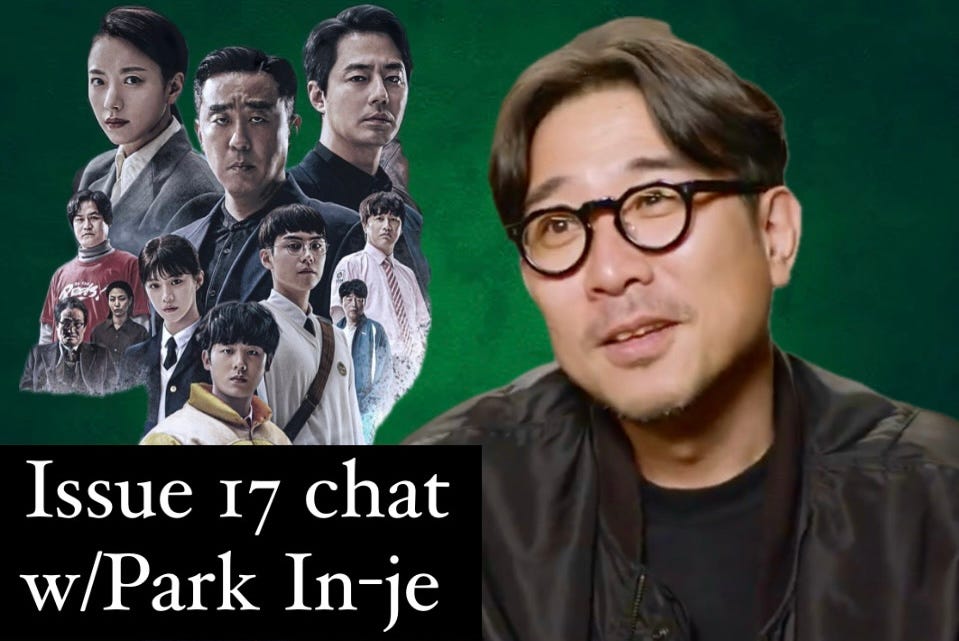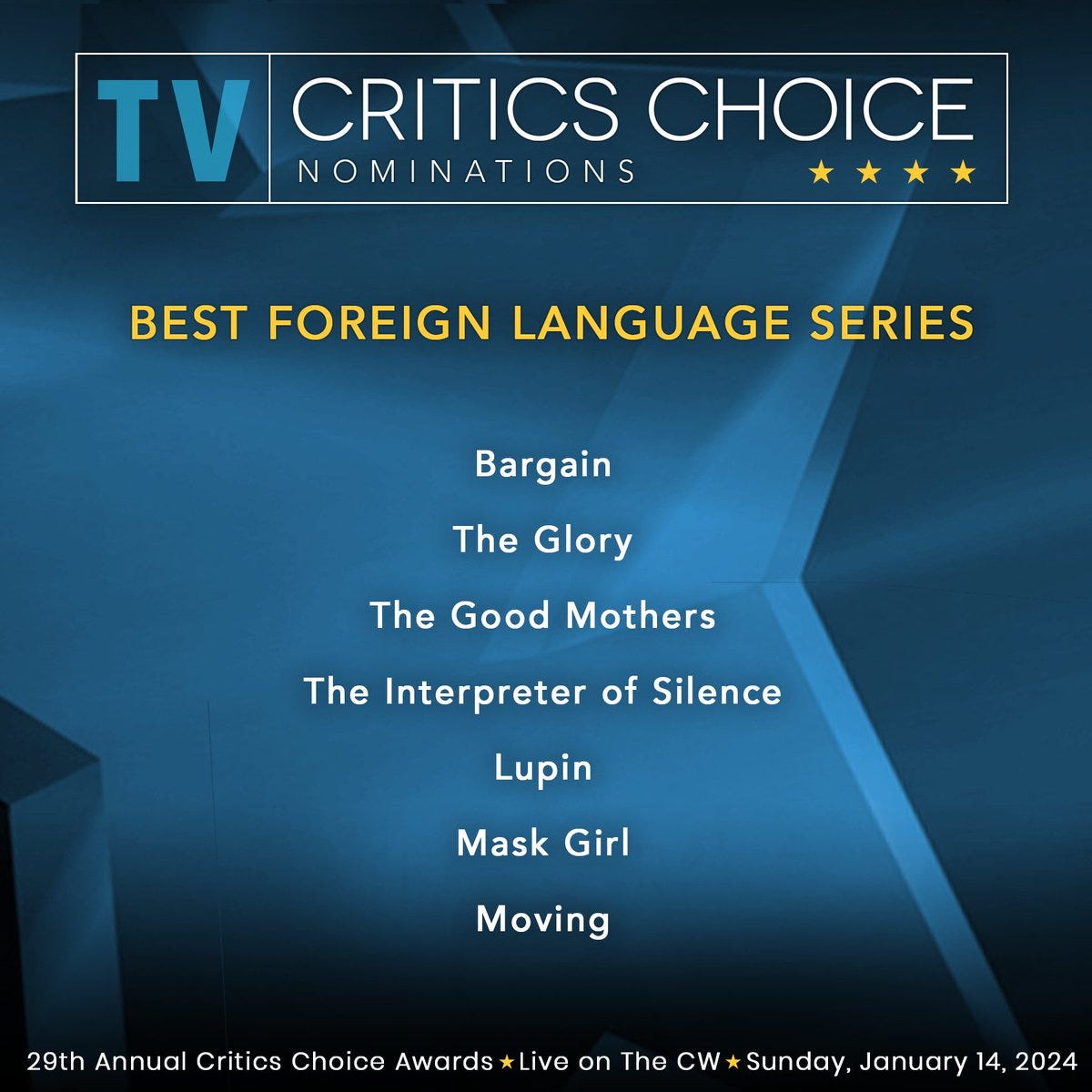Asian A.V. club newsletter #17: Miho Suzuki
Let's all glow up from chatting with award winning makeup artist Miho Suzuki and try not to nerd out completely talking superheroes with Moving director Park In-je.
So… not sure if you noticed, but we may have taken a bit of a much needed break over the past few weeks to reconfigure and make new plans on how to develop our little ‘club’ in the coming year. But that doesn’t mean we haven’t stopped talking to some of the most interesting, creative folks that are making career inroads on some of the buzziest titles around! So be prepared cause you’re going to be meeting some really awesome folks in the coming weeks!
Let’s start with the esteemed makeup artist Miho Suzuki. As one of the top makeup creatives working today, Miho effortlessly transitions between editorial and feature films. But her recent collaborations with Zoe Kravitz and Brie Larson have earned her multiple makeup award nominations on the popular shows Big Little Lies and Lessons in Chemistry.
We talk to Suzuki just as Lessons recently finished it’s successful Apple TV+ run.
Asian A.V. Club: What was it about makeup that made you want to pursue a career in it?
Miho Suzuki: I did not know anything about this growing up. I come from the countryside in Japan and part of a very straightforward family. My mom always told me as a child, to grow up to be a doctor or lawyer or accountant. You know, all those nice intelligent jobs and I thought that was the only option that I could have. But I always loved drawing as a child. And then, when I was applying for university, I said to my mother, do you think I can go to Art University? And she was like, what are you gonna do afterwards? And then I couldn't answer.
Because I was interested in English, I majored in English but I couldn't give up on pursuing art. So I went to London, so I could do both. There just happened to be a makeup course taught at the university and I took it to make up my credits. I didn’t even know that you could have a career as a makeup artist.
Asian A.V. Club: How did that transition into getting jobs as a makeup artist?
Miho Suzuki: So my life and career is all about accident, never planned. It just snowballed. I had run out of my savings to stay in England. So I needed to work. As a student, we were allowed to work 20 hours of a week, and I ended up picking this makeup counter. At this retail job, a lot of artists would come and shop, and they were like, ‘Would you be interested in assisting me?’ And then I started going on set and made connections. Just a little bit by bit.
Asian A.V. Club: But your career led you back to Japan.
Miho Suzuki: I had to move back to Japan after my visa expired so I returned to Tokyo. But in Tokyo, you basically get trained under a master, spending years studying under them before you can get on set. For someone like me, because I was working in England already, I had a bit of a career. So I asked myself, do I want to spend 10 years in Tokyo being under somebody, or do you want to just challenge yourself to work in another place? Plus, I missed speaking in English and working abroad. So I moved to America.
But, you know, I didn't have any contacts or a network. So I started looking for jobs on Craigslist. These were small, non-union, micro budget projects, where you basically have to do everything in a short time in. So it made me learn how to do things fast. I didn't have the luxury to spend 45 minutes on the person's face because I had to do hair AND makeup; I had to do it all. I had it years and years of non-union projects and it made me a better makeup artist.
Asian A.V. Club: What was it like to get into the union and what was your first big union job?
Miho Suzuki: So after I joined the union, you start from the beginning because it’s a brand-new world. And it was exciting and overwhelming. I felt like I just came out of makeup college not long ago but this was such a different world. I was meeting all these makeup artists who looked like idols, and I felt like very starstruck with everybody.
My first big job was because the Oscar winning makeup artist Kate Biscoe (Vice) was working on a movie based on a Japanese anime called Ghost In The Shell. She called me to help with a reshoot in LA and that was my first time I had a trailer! (laughs) I was so excited and was like, this really is a dream come true.
Asian A.V. Club: You have since worked on a few more action-adventure films like Kate, Birds of Prey and Kimi, did all those types of films lead to you working with Brie Larson on The Marvels?
Miho Suzuki: I was recommended by the makeup artist Heba (Thorisdottir), but I wasn’t sure if I was able to do it because it’s such a huge opportunity. Then as soon as I met Brie, everything just settled in. She just made me so comfortable. She creates an atmosphere and tone for all of us to be ourselves. That's what happened on the set of Lessons in Chemistry too, she really set the tone of a family because the project was about family. Everybody was so excited to be there and do a great job.
Asian A.V. Club: When you were doing her face for The Marvels, did she tell you that she wanted you for Lessons?
Miho Suzuki: Actually The Marvels principal photography wrapped by then and Brie’s team reached out to me and asked if I would be interested. I was like, of course! There’s nothing to say no to about Lessons. (laughs)
Asian A.V. Club: Did you work with Brie to create the look of Elizabeth Zott?
Miho Suzuki: 100%. Every time when I worked with an actor, I always ask what their vision is because ultimately, they're the one transforming themselves into this character. We are here to support them. I also discuss with the director, the creator, the producer on their vision too. Basically I am the hands that help create on their behalf. But of course, I put a little bit of my essence to it.
In the beginning, [Elizabeth] is a student, and she's very serious about the program she is in and being a scientist that will move on to become a PhD. So it didn't make sense for me to put a lot of makeup on as she is really not a self-absorbed person. Also, she is still a university student, so I wanted to make her look fresh. Brie has a beautiful skin, so I try not to hide her with the makeup. So the makeup was very, very minimal, to make her look useful, ambitious, and innocent, all those all those elements.
Then as she grows, I introduced a little bit of makeup here and there until when we get to the Supper at Six TV show, that's the biggest makeup. Just by adding little bits, it would also help to showcase the timeline. You know when she is grown up and you can see some time has passed, because the audience can really understand by the visuals. So that was my plan as well.
Asian A.V. Club: Did you look into archives to research the looks of women during these various periods? That must have been fun.
Miho Suzuki: Right? I started collecting visuals. Most of Lessons in Chemistry happens in the 50s, so I studied videos and did most of my research for that decade. But then when you look, there's a lot of celebrity photos. Though the celebrity image is helpful, it is not always relatable. We needed to look for normal people, what we would have looked like at the time. So I reached out to UCLA and they gave us permission to access their yearbooks. That way, we were able to study about the regional trend of the makeup and how they looked overall. Because ultimately, it's not just makeup, the whole thing has to be cohesive. I was able to learn how people looked like in LA and at UCLA at the time, it was very helpful.
Asian A.V. Club: I read this really interesting quote that you said that skin needs to look like skin on camera. How difficult is that to actually to fulfill?
Miho Suzuki: It looks so easy, but it's really not. (laughs) I said to my team, we are makeup artists and we are there to apply the makeup. But let’s make it look like there’s as little makeup as possible. I don't know about you, but when I watch a show, and I can detect makeup on the man's face, it throws me out of the story. I really wanted to not to do that.
I always love seeing characteristics on the face. Because we all look so different, I really wanted to have everyone look individual and not uniform. I try to learn the characteristics of the face, utilize it, and make the most of it. Then that way we can also minimize the makeup and make each face distinct. So I kept reminding my team to not apply too much makeup. They trusted my vision and I'm so thankful for that.
Asian A.V. Club: It’s a known fact that doctors are the worst patients. Are makeup artists the worst when they have to do their own faces. I'm just curious.
Miho Suzuki: Well, I have been wearing this makeup last 25 years. I haven't changed one thing. So I guess that answers the question, but also, I hide every Halloween. I just hide.
Asian A.V. Club: People call you up and they're like, ‘Heeeey’, and you're like, “No”.
Miho Suzuki: It’s so true, makeup artists aren’t helpful during Halloween. (laughs) That's amazing.
Asian A.V. Club: I hope you don’t mind at how nerdy this next question is, but I looked at your IMDB and I see you did some prosthetic makeup for one of our all-time fave horror films, 28 Days Later!
Miho Suzuki: That was my very beginning of the career. I just happened to meet those prosthetic artists that were in charge of the puppets for 28 Days Later. They were doing a music video and I was on set doing beauty makeup. I was a student at the time and I because I was curious, I asked if I could visit their workshop. So I go to the shop and it was so dirty and I got so irritated that I grabbed the broom and started sweeping. (laughs) Basically I started interning, and then they taught me to cut hair and also some painting. I’m like, how did this even come about? (laughs). But you know, they gave me a credit for that film. And that was the last job experience I had in London before I went back to Japan.
So when the movie came out in Japan, I remember I went with my sister who was hugely pregnant at the time. This movie was so scary that she was like my baby is going to pop! (laughs) I didn't expect it the credit and it was so cool. But yeah, that's how I got it.
Asian A.V. Club: I love how unplanned it was.
Miho Suzuki: My life is like an accident. I just happened to be there and I start doing things and meet people and then I just stumble onto those occasions and learn bits and bobs.
Asian A.V. Club: A lot of the people I’ve been talking to say that their careers has been a continuous stream of ‘sure why not’ decisions, but everything falls into place over time.
Miho Suzuki: That was nice to talk about how I came here. I never talk about myself that way, that was a good reminder.
Asian A.V. Club: We can’t wait to see what you’re working on next! Thanks again.
Lessons in Chemistry is available on Apple TV+ now.
We’re not done yet! Like most of the world that watched the action packed superhero, gangster, spy, family, first love, k-drama Moving, we were blown away by how each week, the series would take a new turn in storytelling, creating one of the most captivating obsessive inducing series of last year (we may have been too effusive cause we got our first and probably only ad quote in the process).
So when we heard director Park In-je was going over to LA to attend the Critics Choice Award for his Best Foreign Language series nomination, we just begged our way into being superfans to his face.
Asian A.V. Club: You started your career making a lot of exceptional short films, what did you learn from that shorter format and did you transfer any of that when you worked on a sprawling show like Moving?
Park In-je: The short films I made in the past were actually made in the form of graduation films at film school, so I think it would be more correct to see that process as some kind of practice for making a feature-length film. But now that I think about it, one of my short films was about a North Korean defector and coincidentally, the villains in Moving are also from North Korea, so obviously even after all these years later, similar characters and themes are interesting to me.
Asian A.V. Club: After directing successful films like The Mayor and Moby Dick, did you have to retrain your skills on longer episodic formats like Kingdom and the whopping 20 eps of Moving?
Park In-je: After I directed my second feature film, I was offered to direct Kingdom on Netflix. And I think there's kind of a key difference between the TV dramas that are on streaming services than the ones on broadcast TV. The ones on streaming are a little bit more movie like. When I got the offer, I was initially a bit unsure of whether to take it or not. But I've always been open to new challenges and I've always really enjoyed the zombie genre. But it was actually more important to know what kind of drama it was. Even though it’s a drama with zombies, I wanted to put it against a political background.
So I kind of dove in. And rather than a type of retraining, I think my approach was to make that shows as movie like as possible. But with Moving, I saw the show like watching little movies. Each one had a different feel and genre. One is a romance movie, now it’s a gangster movie, now it’s something else.
Asian A.V. Club: Funny that you break it down into little movies because that’s what made the series so wonderful experience. Of all the ‘little movies’ that you made for Moving, which one are you most proud of?
Park In-je: The Joo-won (Ryu Seung-ryong) gangster episodes were good, and the big action episodes were also good. But the one genre that I didn’t think I’d be writing a screenplay about was the romance episodes between Mi-hyeon (Han Hyo-joo) and Doo-shik (Zo In-sung). I couldn’t predict I would ever end up directing something like that. I was very nervous about their first kiss because I felt it would be cringey, so I had to fully rely on my actors. But I also added something like, ‘what if Doo-sik would fly in the sky if he just kissed?’ We tried something new with that and I can say that I’m pretty proud of the result.
Asian A.V. Club: How important was it to you to get the right cast for each of these roles?
Park In-je: The role that the actors play is actually one of the most important roles when entering production. Personally, I put the most effort into casting. If there is a problem there, there will be a problem in directing on set.
Asian A.V. Club: Were there any actors that you found difficult to cast?
Park In-je: In the case of adult actors, they are already established. Because they have a more extensive filmography, I was able to watch their past work, and select them based on that. But definitely, it was more difficult to find the younger actors because, you know, they're up and coming and they haven't worked on as many projects. So I probably saw thousands of younger actors in order to cast those main roles. Particularly in the case of Bong-seok (Lee Jeong-Ha), because he is based on the webtoon, the character has to be chubbier and willing to be in a harness and levitate in the air. I put in a lot of effort into finding someone to play him. Because most actors have slim bodies, we had to find an actor that was willing to gain the weight while preparing for the role. Jeong-ha was the perfect fit and helped that he was a fan of the webtoon as well.
Asian A.V. Club: Your series was one of the four Korean series alongside Bargain, The Glory, and Mask Girl, that got nominated for Best Foreign Language Series at this year’s Critics Choice Awards, it must be a proud moment to see Korean content get international recognition like this.
Park In-je: It’s very nice. I think there has been this kind of influx of Korean culture through Parasite, Squid Games & BTS. And that kind of opened the doors to familiarity to Korean culture, and the willingness of foreign audiences to accept Korean culture. With all the Korean nominations, it almost seems like it's not a foreign TV category, but people are accepting it as a domestic TV category. And that makes me feel very proud. If we work really hard to produce good content in Korea, we don't have to come all the way to Hollywood to shoot it anymore and it can still be recognized by a wide audience.
Moving is streaming in full now on Hulu [and Disney+ outside of the US].


